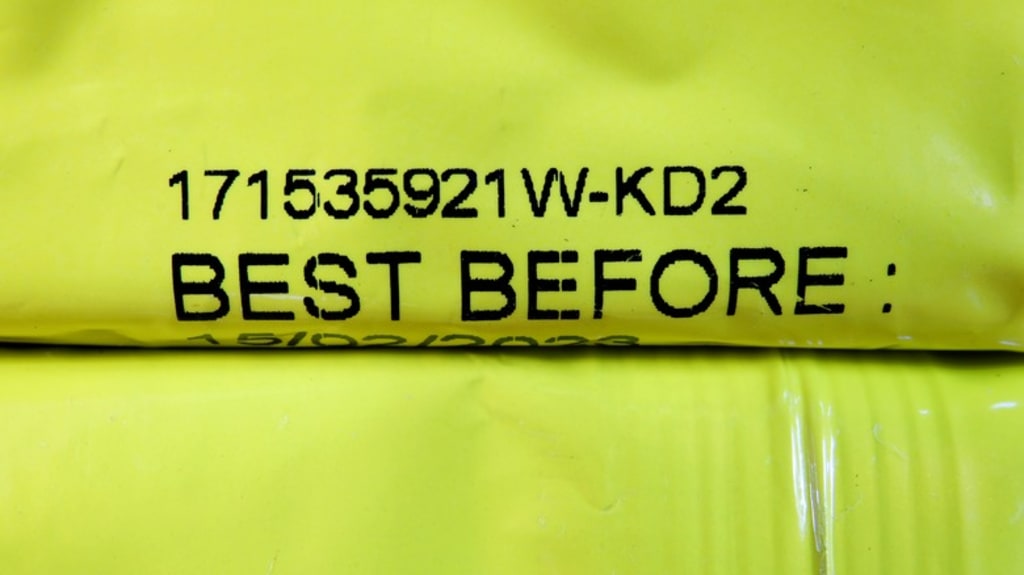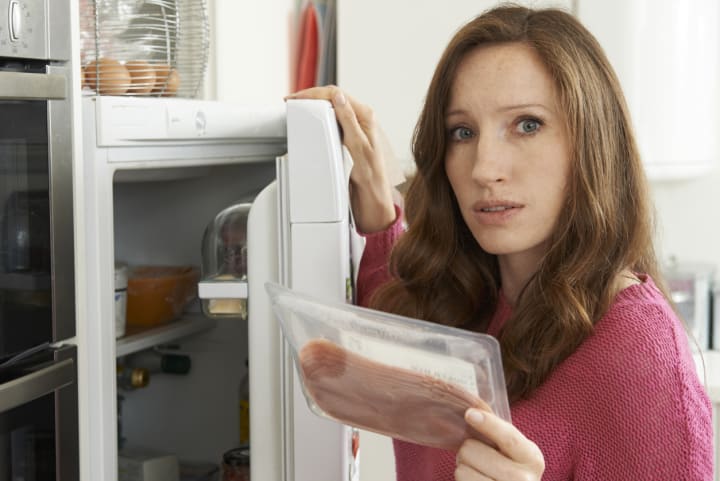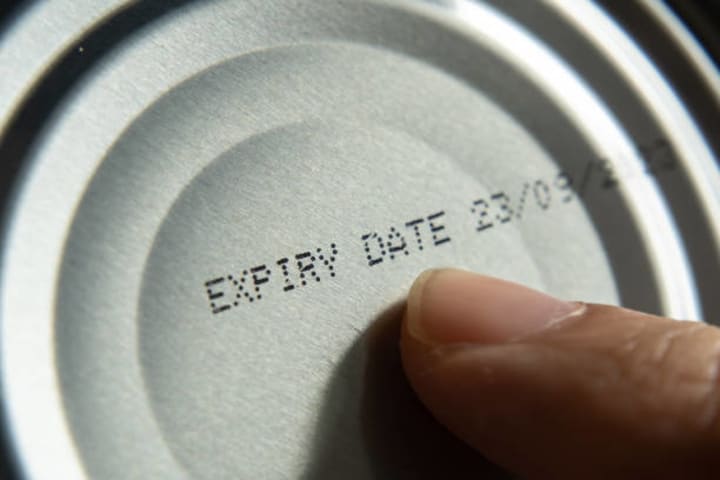Fact check: Is it safe to eat food after its expiration date?
Even if the food is past the date on the packaging, it could still be perfectly good.

What are expiration dates?
Expiration dates are labels that are placed on food and other products to indicate when they are no longer at their best quality. They are not necessarily a measure of safety, and some foods can still be safe to eat after their expiration date.
There are three main types of expiration dates:
- Sell-by dates: These dates are used by retailers to determine when a product should be removed from the shelves. The food may still be safe to eat after the sell-by date, but it may not be as fresh or flavourful.
- Use-by dates: These dates are used to indicate when a product is no longer at its best quality, but it may still be safe to eat. The food may start to lose its flavour or texture after the use-by date, but it is not likely to make you sick.
- Expiration dates: These dates are used to indicate when a product is no longer safe to eat. The food may contain harmful bacteria or other contaminants after the expiration date, so it should be discarded.
It is important to note that expiration dates are not always accurate. Factors such as storage conditions, handling, and preparation can all affect how long food stays safe to eat. Therefore, it is always a good idea to check for signs of spoilage before eating food, even if it is within its expiration date.
What do expiration dates mean?
Expiration dates are dates after which something should not be used, either by law or by quality standards. They are usually applied to consumable products such as food or medicine, which may decline in quality or effectiveness over time. An expiration date is determined by the manufacturer or the law, based on the expected shelf life of the product.
According to Dr. Diez-Gonzalez, a food safety expert and professor, expiration dates aren’t as precise or as stringently applied you likely assume. “Expiration dates mean that a company can guarantee the full quality of the product if it’s consumed within that period of time,” he says.
In general, it is important to pay attention to expiration dates on food and medicine products. Consuming expired products can lead to food poisoning or other health problems.

Are all expiration dates created equal?
The answer to this question is no, not all expiration dates are created equal. There are different types of expiration dates, and they mean different things.
- Sell-by date: This date is used by retailers to determine when a product should be removed from the shelves. It does not necessarily mean that the product is unsafe to eat after this date, but it may not be as fresh or flavourful.
- Best by date: This date indicates when the product will be at its best quality. The food may still be safe to eat after this date, but it may not taste as good.
- Use-by date: This date is the last day that a product is safe to eat. After this date, the food may contain harmful bacteria and could make you sick.
It is important to note that expiration dates are just a general guideline. The actual shelf life of a product can vary depending on how it is stored. For example, food that is stored in the refrigerator will last longer than food that is stored at room temperature.
Expiration dates are not always a reliable indicator of food safety.
The food dates or “expiration dates” we’re so familiar with are actually not indicators of food safety at all, they are simply the manufacturer’s suggestion as to when their product is at best quality.
Best-by and sell-by dates for most food items only indicate food quality, not food safety. Confusion about expiration dates has contributed to 20% of the overall food waste in the United States.
Making matters even more confusing is the surprising revelation that expiration dates are not an indication of how safe the food is to eat. They’re not related to the risk of food poisoning or the presence of foodborne illnesses3. In fact, most products are safe to eat long after their expiration date. Even meat or milk that’s clearly starting to spoil is not necessarily dangerous.
Supporting details:
- Expiration dates are based on the manufacturer’s best estimate of how long the food will stay fresh. However, it’s important to note that these dates are not regulated by the FDA and are not required by law. The FDA only requires expiration dates on infant formula and some baby foods.
- Factors such as storage conditions, handling, and preparation can all affect how long food stays safe to eat. For example, if food is not stored at the correct temperature or is not handled properly, it can become contaminated with bacteria that can cause foodborne illness. It’s important to follow safe food handling practices to reduce the risk of foodborne illness. This includes washing your hands and surfaces often, separating raw meat from other foods, cooking food to the right temperature, and refrigerating food promptly.
- It is important to check for signs of spoilage before eating food, even if it is past its expiration date. Some common signs of spoilage include a bad smell, mold, or a slimy texture. If you notice any of these signs, it’s best to throw the food away.

How long can you eat food after its expiration date?
The answer to this question depends on a number of factors, including the type of food, how it was stored, and your individual tolerance for food that is past its prime.
In general, most foods are safe to eat for a few days after their expiration date. However, some foods, such as dairy products, meat, and poultry, should be consumed sooner.
Here is a general guide to how long different types of food can be safely eaten after their expiration date:
- Dairy products: Milk, yogurt, and cheese should be consumed within 7-10 days of their expiration date.
- Meat and poultry: Raw meat and poultry should be cooked and eaten within 1-2 days of their expiration date. Cooked meat and poultry can be stored in the refrigerator for 3-4 days or in the freezer for 3-4 months.
- Eggs: Eggs can be stored in the refrigerator for 3-5 weeks after their expiration date.
- Canned goods: Canned goods are safe indefinitely if they are stored in a cool, dry place. However, the quality of the food may decline over time.
- Packaged foods: Packaged foods, such as cereal, crackers, and cookies, can be safely eaten for several months after their expiration date.
It is important to note that these are just general guidelines. The actual shelf life of a food will vary depending on the specific product and how it is stored. If you are unsure about whether a food is safe to eat, it is always best to err on the side of caution and throw it out.
Here are some tips for extending the shelf life of food:
- Store food properly. Different foods require different storage conditions. For example, dairy products should be stored in the refrigerator, while canned goods can be stored in a cool, dry place.
- Freeze food. Freezing is a great way to extend the shelf life of food. Most foods can be frozen for several months.
- Use your senses. One of the best ways to tell if food is bad is to use your senses. If a food has an off odor, flavour, or texture, it is best to throw it out.
By following these tips, you can help to ensure that your food is safe to eat and that you are not wasting food.

Tips for extending the shelf life of food.
Here are some tips for extending the shelf life of food:
- Store food at the correct temperature. This is the most important factor in preventing food spoilage. The ideal temperature for storing food varies depending on the type of food, but in general, you should keep food cold or frozen.
- Use airtight containers. This will help to prevent air, moisture, and bacteria from getting to the food, which can all shorten its shelf life.
- Store food in a cool, dark place. Heat and light can also speed up food spoilage, so it's best to store food in a cool, dark place.
- Label food with the date it was purchased or opened. This will help you to track how long food has been stored and ensure that you don't eat anything that has gone bad.
- Inspect food regularly. Look for signs of spoilage, such as mold, discoloration, or an off odor. If you see any of these signs, discard the food.
- Freeze food. Freezing is a great way to extend the shelf life of many foods. Just be sure to thaw food properly before eating it.
- Use food preservation methods. There are a number of food preservation methods that can help to extend the shelf life of food, such as canning, pickling, and drying.
Here are some additional tips that you may find helpful:
- Store fruits and vegetables in separate places. Some fruits, such as apples, produce ethylene gas, which can cause other fruits and vegetables to ripen faster. To prevent this, store ethylene-producing fruits in a separate place from other fruits and vegetables.
- Don't wash fruits and vegetables before storing them. Washing fruits and vegetables can introduce moisture, which can promote the growth of bacteria. Instead, wash fruits and vegetables just before eating them.
- Use airtight containers or bags for storing leftovers. This will help to prevent the growth of bacteria and mold.
- Cook food thoroughly. Cooking food to the proper temperature will kill harmful bacteria and extend its shelf life.
- Store cooked food in the refrigerator or freezer as soon as possible. This will help to prevent the growth of bacteria.
By following these tips, you can help to extend the shelf life of your food and reduce food waste.
Here are some additional resources that you may find helpful:
- USDA Food Safety and Inspection Service:
- Food and Drug Administration:
- National Center for Home Food Preservation:
About the Creator
TUHIN HANSDA
Explore My Profile for a Variety of Stories Across Different Niches. Writing has always been my passion. It enables me to delve into new ideas, beliefs, and the dreams that constantly occupy my mind.





Comments
There are no comments for this story
Be the first to respond and start the conversation.